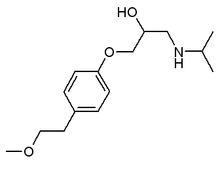Beta-adrenergic receptor blockers have been shown to reduce morbidity and mortality in patients with mild to moderate congestive heart failure (CHF). Beta-blocker therapy has been shown to reduce the symptoms of heart failure and appears to be well tolerated by these patients. Despite this proven benefit, there is still some concern about use of beta blockers in patients with more severe CHF. The concern is that these agents may actually worsen symptoms and increase mortality. Goldstein and colleagues studied the effect of a beta1-selective beta blocker--metoprolol controlled release/extended release--in the treatment of patients with severe CHF.
The study was a subgroup analysis of the larger MERIT-HF study with 795 enrolled participants. The study group consisted of patients with New York Heart Association (NYHA) Functional class III or IV heart failure and an ejection fraction of less than 25 percent. Those who qualified for the study were randomly assigned to receive placebo or metoprolol, with starting dosages of 12.5 or 25 mg once daily. The dosage was doubled every two weeks up to a target of 200 mg per day or the highest tolerated dosage. The study looked at cardiac morbidity and mortality, hospitalizations, and tolerability of treatment.
The yearly mortality rate in the metoprolol group was reduced by 39 percent compared with the placebo group. In addition, sudden deaths were reduced by 45 percent, and the number of deaths secondary to worsening of heart failure was reduced by 55 percent. The metoprolol group also had fewer hospitalizations and showed improvement in NYHA functional classification. Metoprolol was well tolerated, and fewer persons withdrew from the trial group than from the placebo group.
The authors conclude that metoprolol controlled release/extended release can be used in the treatment of severe CHF. This treatment was well tolerated, reduced mortality rates, and improved heart failure symptoms.
COPYRIGHT 2002 American Academy of Family Physicians
COPYRIGHT 2002 Gale Group



